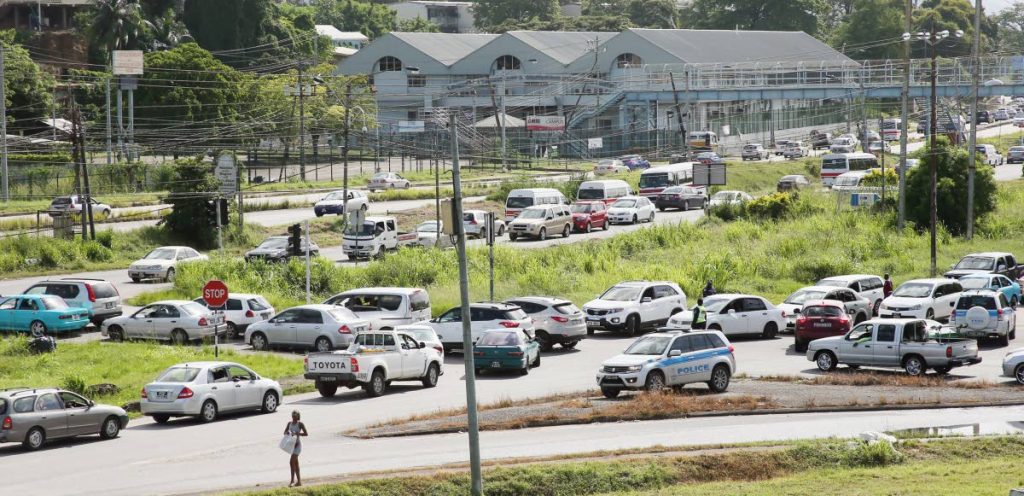Census before tackling transportation issue

There are no short-term solutions for long-term problems, and transport in this country needs long-term solutions.
This is according to Dr Trevor Townsend, head of civil and environmental engineering at UWI.
He was speaking at a transportation symposium held at UWI, St Augustine, at the engineering department.
Dr Rae Furlonge, a transportation engineering consultant, Linus Philip, president of the Route 2 Maxi Taxi Association, and Ryan Darmanie, an urban planning consultant and Newsday columnist, shared their many suggestions.
Furlonge suggested that before any measures could be implemented, a proper census should be done, as he believes that the current population is closer to two million and not the 1.3 million that has been suggested. At least 650,000 people are unaccounted for, and this is a contributing factor to the congestion on the roads, he said.
He added that any transport system that is to be implemented has to cater to the needs of all members of society and one of the ways to do this is to set up a transport authority.
“We have never had public-transport management in this country, never, even to this day. PTSC is (just) a government-owned bus company,” Furlonge said.
Another suggestion he made was to reduce the number of lanes on the highway and the speed limit. This cannot be done until proper public transport systems have been put in place, he continued.
“Minimise the amount of lanes. Minimise instead of maximise. Reduce the lane length, because it reduces the speed.
“You can reduce the speed and still get higher capacities. What it does is provide for all the modes of travel. In other words, it’s called road-sharing.”
This method would be extremely efficient in urban centres, Furlonge added.
Another area that needs special focus is the accessibility of transport, he continued.
“We have not given any emphasis in our decision-making to accessibility. We build housing communities, and the first business that set up there is PH (drivers), because the people still have school to go to, and work and so on.”
Safety was also a major issue, he added, as he believes there are public-transport terminals that double as drug dens in the night.
Furlonge said he would like to see public transit fares subsidised to make it a competitive and viable option.
Another factor that must be considered is the urban layout of the country, Darmanie chimed in. He said the congestion situation is one now being faced by the world and something as simple as looking at where pavements are placed can help create a more social and inviting space which might encourage people to use pedestrian walkways more. Darmanie hopes to help through his work by focusing on reforming the planning regulations.
From a maxi taxi driver’s point of view, Philip believes the rural areas of the country are being neglected. He suggested using maxi taxis with chequered bands to service these areas, and said once a driver had been assigned to the area he would have to stay there and ensure the community always had transport.
He also called for better planning to help ease congestion.
“If you look at a government-designed plan for a community or area, you see infrastructure for roads, drains, you see parks – but do you ever see a plan anywhere for a bus stop? Do you ever see an area marked out for a taxi stand? We don’t,” Philip said.

Comments
"Census before tackling transportation issue"